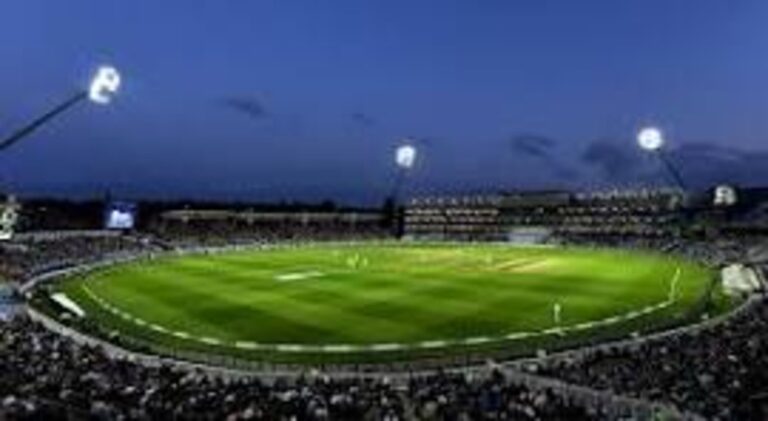Analyzing the Socio-Economic Impact of IPL Host Cities
Reddy Anna Book, 99exch: The Indian Premier League (IPL) has become one of the most popular and lucrative cricket leagues in the world since its inception in 2008. While the IPL primarily focuses on cricket, its impact reaches far beyond the boundaries of the cricket field. The host cities of the IPL matches play a significant role in shaping the socio-economic landscape of India. In this article, we will analyze the socio-economic impact of IPL host cities and explore how hosting IPL matches affects these cities.
Mumbai: The Financial Capital
Mumbai, the financial capital of India, has been a consistent host city for the IPL since its inception. The presence of Mumbai Indians, one of the most successful franchises in the IPL, has boosted the economy of the city. The influx of tourists during the IPL season boosts the hospitality and tourism industry, leading to increased revenue for hotels, restaurants, and other businesses in the city.
Furthermore, the IPL matches held at the Wankhede Stadium create employment opportunities for locals, ranging from security personnel to vendors selling merchandise. The city witnesses a surge in cricket-related activities during the IPL season, contributing to the overall vibrancy of Mumbai’s economy.
Bangalore: The Tech Hub
Bangalore, known as the Silicon Valley of India, is another prominent host city for IPL matches. The presence of Royal Challengers Bangalore, one of the most popular franchises in the league, attracts cricket enthusiasts from across the country. The matches held at the M. Chinnaswamy Stadium not only provide entertainment but also contribute to the city’s economy.
During the IPL season, Bangalore experiences a rise in footfall in hotels, restaurants, and shopping malls. The demand for merchandise and tickets for RCB matches results in increased revenue for local businesses. Additionally, the city benefits from the branding and visibility associated with hosting IPL matches, further enhancing its reputation as a vibrant tech hub.
Chennai: The Cultural Heritage
Chennai, with its rich cultural heritage, has been a significant host city for the IPL. The presence of Chennai Super Kings, one of the most successful franchises in the league, has made the city a cricketing hub. The matches held at the M. A. Chidambaram Stadium attract cricket fans and contribute to the city’s cultural and economic fabric.
During the IPL season, Chennai witnesses a surge in tourist arrivals, resulting in increased revenue for the hospitality and tourism sector. The matches also create employment opportunities for locals, ranging from ticketing staff to vendors selling food and beverages at the stadium. The IPL has played a crucial role in putting Chennai on the global cricketing map, highlighting its cultural significance.
Hyderabad: The City of Pearls
Hyderabad, known for its rich history and architecture, has become a popular host city for IPL matches. The presence of Sunrisers Hyderabad, a competitive franchise in the league, has elevated the city’s status as a cricketing destination. The matches held at the Rajiv Gandhi International Cricket Stadium attract cricket enthusiasts and contribute to the local economy.
During the IPL season, Hyderabad experiences a surge in hotel bookings, restaurant footfall, and shopping activities. The demand for match tickets and team merchandise boosts revenue for local businesses, enhancing the city’s economic prosperity. Additionally, the branding and exposure associated with hosting IPL matches showcase Hyderabad’s cultural heritage to a global audience.
Kolkata: The City of Joy
Kolkata, known for its rich history, cultural diversity, and passionate sports fans, has been a prominent host city for the IPL. The presence of Kolkata Knight Riders, one of the most popular franchises in the league, has transformed the city into a cricketing powerhouse. The matches held at the iconic Eden Gardens attract cricket aficionados and contribute to Kolkata’s socio-economic development.
During the IPL season, Kolkata witnesses a surge in tourist arrivals, resulting in increased revenue for hotels, restaurants, and local businesses. The matches also create employment opportunities for residents, ranging from security personnel to vendors selling match merchandise. The IPL has played a pivotal role in enhancing Kolkata’s reputation as the City of Joy, known for its passion for cricket and vibrant culture.
Delhi: The Political Capital
Delhi, the political capital of India, has been an integral host city for the IPL. The presence of Delhi Capitals, a competitive franchise in the league, has contributed to the city’s cricketing legacy. The matches held at the Feroz Shah Kotla Stadium attract cricket enthusiasts and tourists, boosting the city’s economic growth.
During the IPL season, Delhi experiences a surge in hotel bookings, restaurant footfall, and retail sales. The demand for match tickets and team merchandise supports local businesses, generating employment opportunities for residents. The branding and visibility associated with hosting IPL matches enhance Delhi’s image as a vibrant and dynamic city, reflecting its political and cultural significance.
Conclusion
In conclusion, the socio-economic impact of IPL host cities cannot be overstated. From Mumbai to Delhi, each host city plays a crucial role in shaping India’s cricketing landscape and economic development. The IPL matches not only provide entertainment but also create employment opportunities, boost local businesses, and enhance the branding of these cities on a global scale. As the IPL continues to evolve and expand, the host cities will continue to reap the benefits of hosting one of the most popular cricket leagues in the world.
FAQs
1. What is the Indian Premier League (IPL)?
The Indian Premier League (IPL) is a professional Twenty20 cricket league in India contested during April and May of every year by teams representing Indian cities.
2. How many teams participate in the IPL?
A total of eight teams participate in the IPL, representing different cities across India.
3. What is the economic impact of hosting IPL matches?
Hosting IPL matches results in increased revenue for local businesses, boosts tourism, and creates employment opportunities in the host cities.
4. Which IPL franchise has been the most successful?
Mumbai Indians hold the record for the most IPL titles, winning the tournament multiple times since its inception.
5. How has the IPL contributed to the growth of cricket in India?
The IPL has played a significant role in popularizing cricket in India and nurturing young talent, contributing to the country’s success in international cricket competitions.
6. Are IPL matches held only in India?
While the majority of IPL matches are held in India, some matches have been played in other countries, such as South Africa and the UAE, due to scheduling conflicts or logistical reasons.







